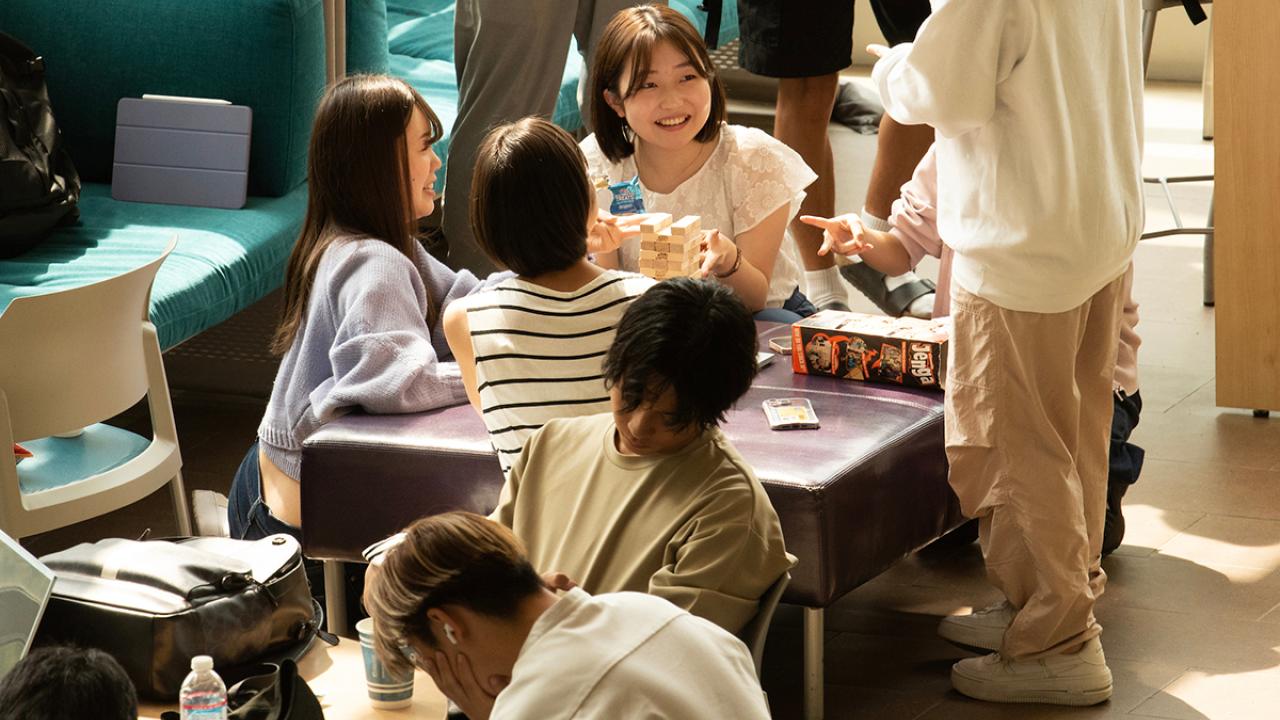
Shaping the Global Classroom: Stories from UC Davis Instructors
Attending university classes while navigating a new country takes courage. With new faces, new people and limited knowledge of the language, studying abroad can quickly become overwhelming.

“It takes a lot of courage to come across the world,” says UC Davis instructor Amna Abunijem, who strives to help her students feel comfortable both in and outside her classroom. “I’d love to see my students keep using that courage as motivation to continue trying new things even after they’ve completed my class.”
At UC Davis Continuing and Professional Education’s International Programs, we host hundreds of international students every quarter who are eager to improve their English, advance their academics and learn about American culture, all while facing similar challenges as they adapt to their new environment. It is without a doubt that instructors, like Amna, play a major role in building up their students’ confidence and are pivotal in guiding them throughout their time abroad.
“Working with international students is particularly rewarding because they are generally the most enthusiastic to learn,” says Amna, who teaches in the Entrepreneurship and International Business Program. She relies on her educational and personal experiences in business, as well as her multicultural background, to shape her classroom environment and teaching practices.
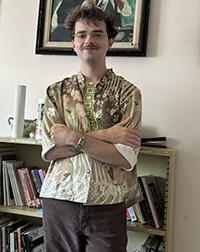
Trevor Bashaw, an instructor in Academic Engagement, also brings his personal experiences and passions into the classroom. He credits his mom, who taught ESL, for inspiring him to pursue a career in international education where he shares his love of reading, writing and the English language with non-native speakers.
“I enjoy the differing perspectives of my international students. They remind me that the world is a big place, and that America is not the center of the universe,” says Trevor, who teaches Wordcraft, a writing and grammar class. “Working with international students has put into perspective how transformative intercultural and interlinguistic education is for moving toward a globalist society.”
Amna and Trevor spoke with us about their work teaching global students and how they foster growth and bridge cultures through education.
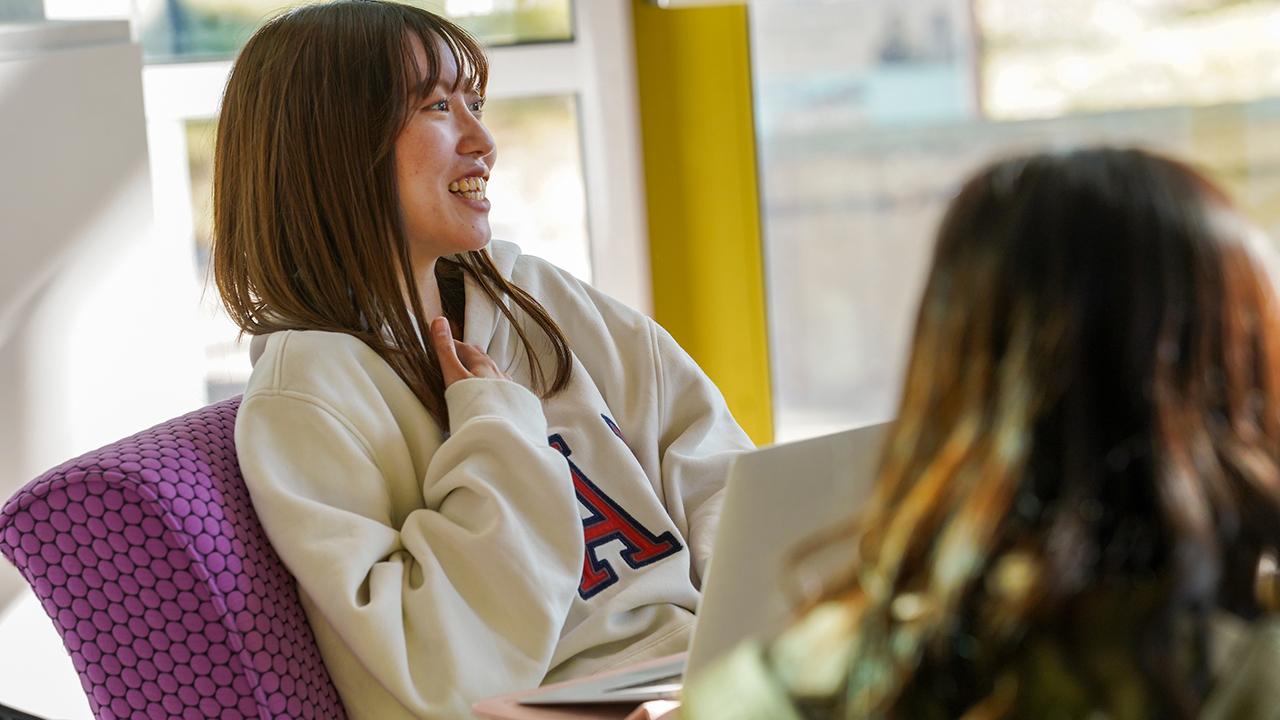
Can you share any unique or rewarding experiences you’ve had while teaching students from other countries?
Amna: At the start of my Introduction to Entrepreneurship classes, I always ask if anyone plans to start a business. Most students are hesitant or even adamant about not pursuing one. When I ask the question again at the end, it’s rewarding to see that more than half the students are interested in entrepreneurship in the future. I also love to see the business plans they present. They come up with amazing ideas, and I know they don’t believe me, but some of those ideas could make a lot of money!
A lot of unique experiences happen during my Ask Me Anything sessions. Students ask about my multicultural background, and we get to have conversations about culture and diversity. We all learn so much during these sessions, and it is one of the most interesting experiences to get to answer questions that students are curious about!
How do you adapt your teaching approach for students from diverse cultural and educational backgrounds?
Amna: Working with diverse cultures is fun because each student brings their culture and experiences to class, and I try to make the classroom a platform to share new cultures. As a teacher, getting to know and understand the students’ cultures helps me adjust my lessons and make them easier to understand.
How do you balance teaching academic or technical skills with helping students adjust to a new cultural environment?
Trevor: I try to make technical lessons culturally immersive and fun by acting out scenarios or planning a road trip across California.
Amna: Most students are excited to absorb academic and technical skills in the classroom. While there is a transition period where students take time figuring out how things work, most embrace their new lifestyles (and classrooms) quickly.
To help during this transition period, I host an anonymous Q and A session where students ask anything they want. It is a great way to get students who don’t usually participate to ask questions. This offers them the opportunity to get a deeper understanding of culture, lifestyle and class content.
What skills or knowledge do you hope students gain from your course, and how will this help them achieve their personal or professional goals?
Trevor: I hope they gain confidence and a feeling of acceptance here. So many of my students already have solid English skills and just need to practice owning it. I think that sort of boldness is valued in the professional world.
Amna: I always hope that students become more open to new experiences and opportunities. When they come to UC Davis they get to interact with a variety of cultures, and it can be a fun and enriching experience. I hope they apply the skills they’ve learned—whether that skill is communicating in English, starting a business, or speaking and presenting in front of an audience—and the courage they’ve built to chase after their dreams and make the world a better place.
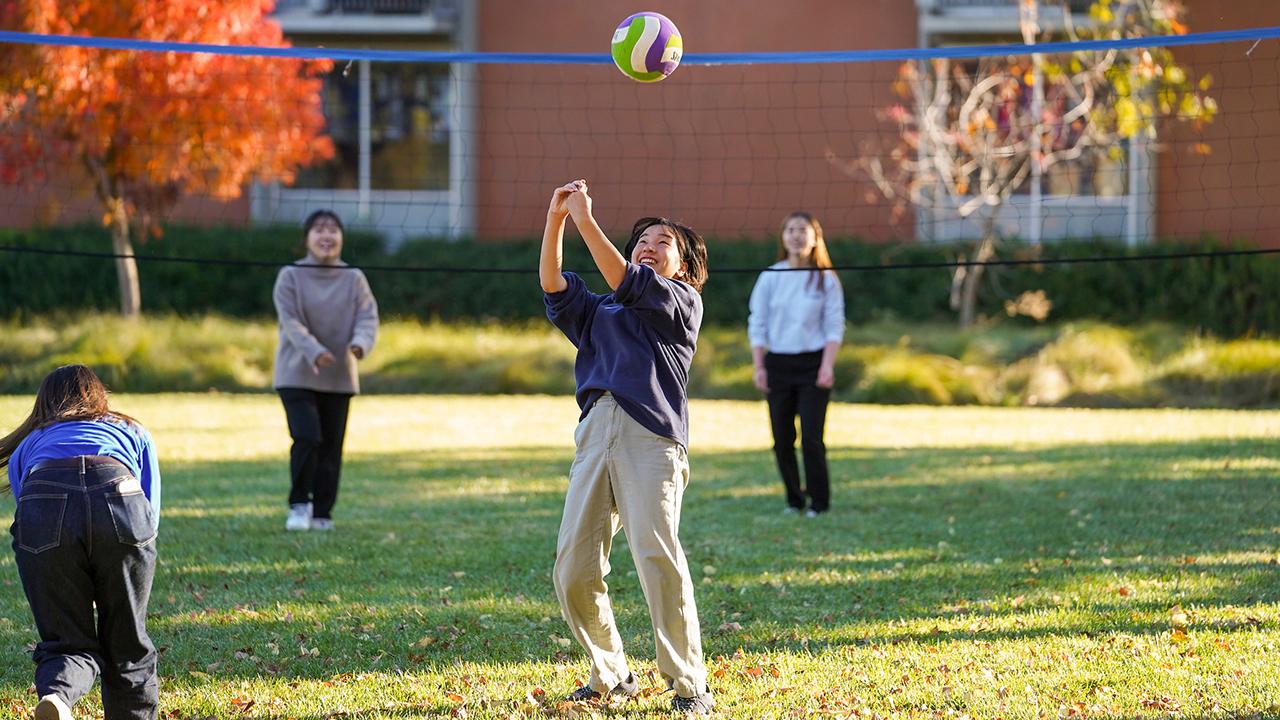
In what ways do you see your students grow or change by the end of their studies with you?
Amna: Students start out shy and quiet, but by the end, most of the students are more confident and outspoken. Seeing students use their knowledge in their final projects also shows the amount of effort they’ve put into learning new skills and applying them.
How do you create a supportive learning environment for international students who may be far from home?
Trevor: I want their experience here to be positive and memorable. I know everyone has other things going on in life, so I just listen and show compassion.
Amna: I have an open communication policy and remind students of the resources available to them. I also check in with students and make myself available to chat when they’re having a really hard time or a really good time. These are moments when students need to share with someone, and I offer a listening ear and some empathy. I know what being homesick feels like, so I try to help them feel a little better.
Do you offer any additional resources or guidance to help students succeed academically and feel comfortable socially?
Amna: I point my students to events and activities that help them feel like they are a part of our campus. I also enjoy teaching my students some slang. It helps them feel like the content is relevant to social life on campus.
How has working with international students shaped your own understanding of global issues or education?
Amna: I learn more from my students than they learn from me. Culture and language are big interests of mine and working with international students increases that interest and passion. Getting to talk to people from various cultures widens my own perspective of the world. Nothing beats the real experience of interacting with different cultures. It’s what makes our world interesting and enriching.
Trevor: Problems that humanity is facing transcend beyond the sovereign nation state—global climate change, international corporations hoarding wealth, war and genocide, the list goes on. We need to learn to cooperate, not compete, with other countries.
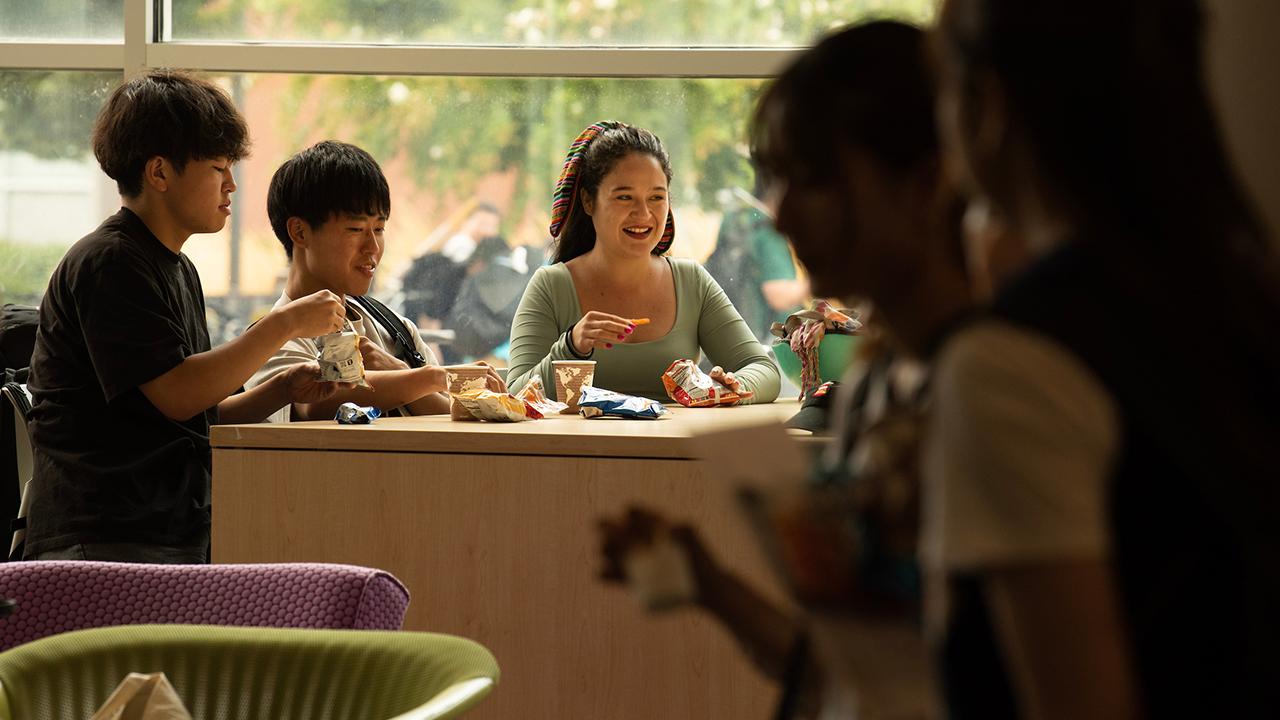
What do you believe is the broader impact of international education, both for the students and for the university community?
Amna: International education can really change a person’s perspective on other people and cultures. When people can interact with others who have different backgrounds, cultures and perspectives, stereotypes and misunderstandings break down. We end up with a more realistic and complex view of others rather than a simplistic idea or a stereotype.
Trevor: International education fosters global cooperation and promotes a more open approach to international relations. Beyond that, I think it’s so special to have friends from other countries and cultures. Even a small contribution to intercultural exchange matters.
Amna: We live in a globalized world, and you can’t underestimate the power of connection across the world. World projects that bring peace, understanding and business benefit from having a deep cultural understanding of others, which international education and study abroad programs can foster.
What advice would you give to prospective international students who are considering studying abroad at UC Davis?
Trevor: Do it! It’s fun!
Amna: I love the values of diversity, connection and understanding UC Davis has. All the teachers I’ve interacted with are amazing at what they do. Their passion to make class fun and engaging is what makes UC Davis stand out.
We also have a beautiful campus with amazing places to visit nearby. We are close to Silicon Valley, and it is a great place for business students to become inspired and motivated to start their business.
What do you hope for your students after they complete their studies here?
Amna: If they’ve learned business skills, I hope they start a business or find a job where they can apply those skills. If they’ve practiced and improved their English skills, I hope it comes in handy, and they use those skills to become successful and productive members of society.
Trevor: I hope they look back fondly, and think of their classes here when they remember an English word or hear a song I introduced them to. I wish them the best for their personal and professional lives.
Amna: I would also love them to keep in touch! I want to know what they do in the future and how this experience enriched their lives.
Discover what we have to offer. Learn more about our academic prep, research and youth programs.
